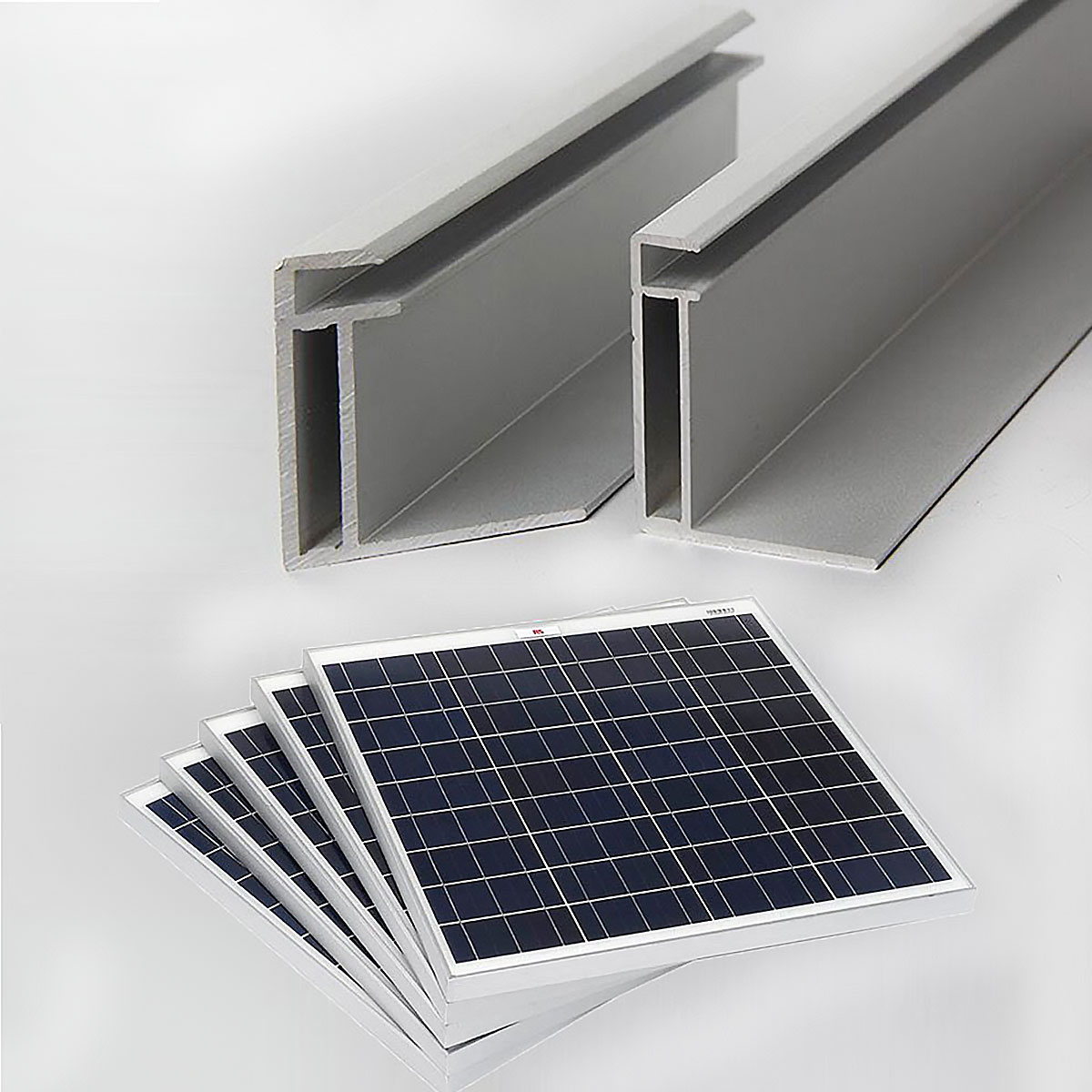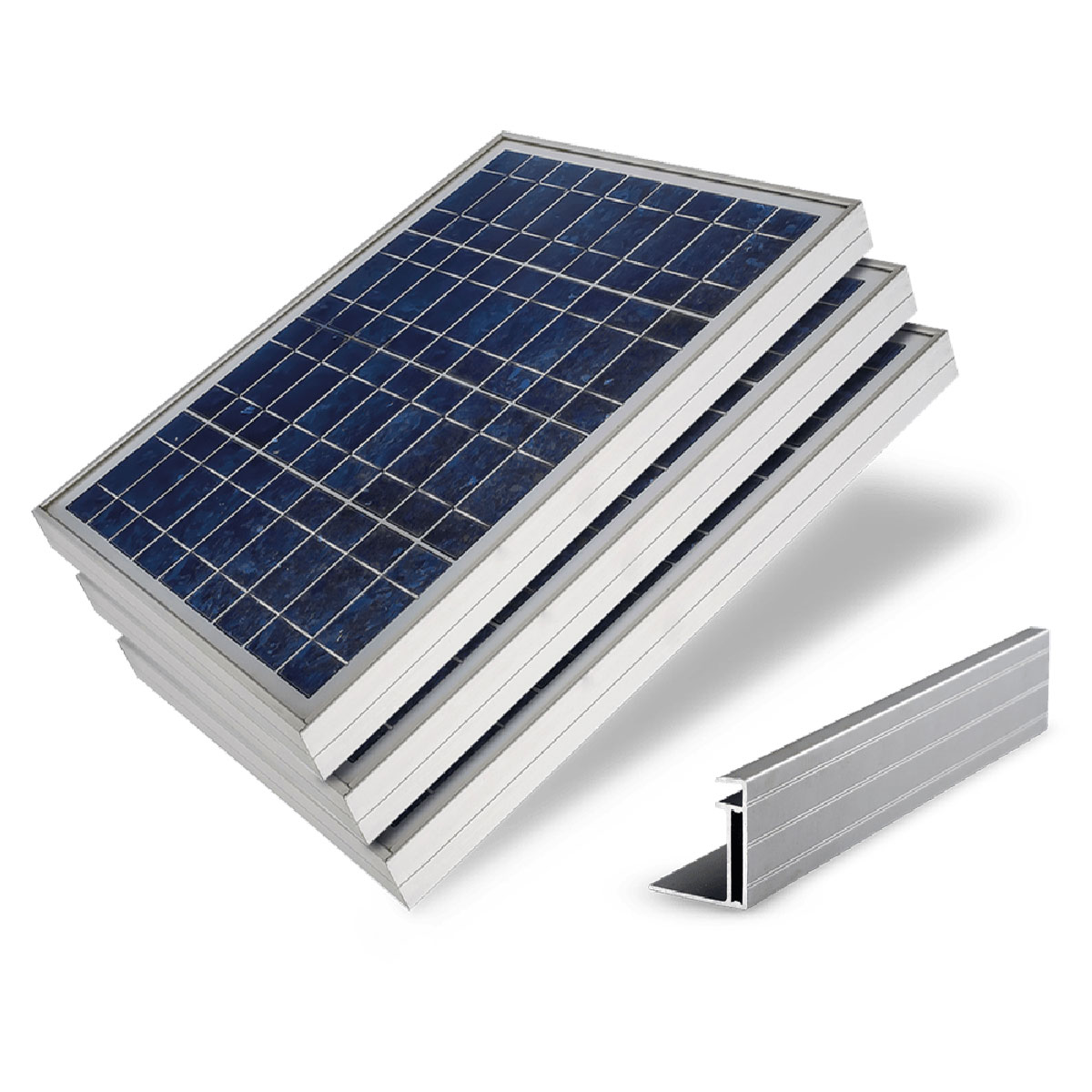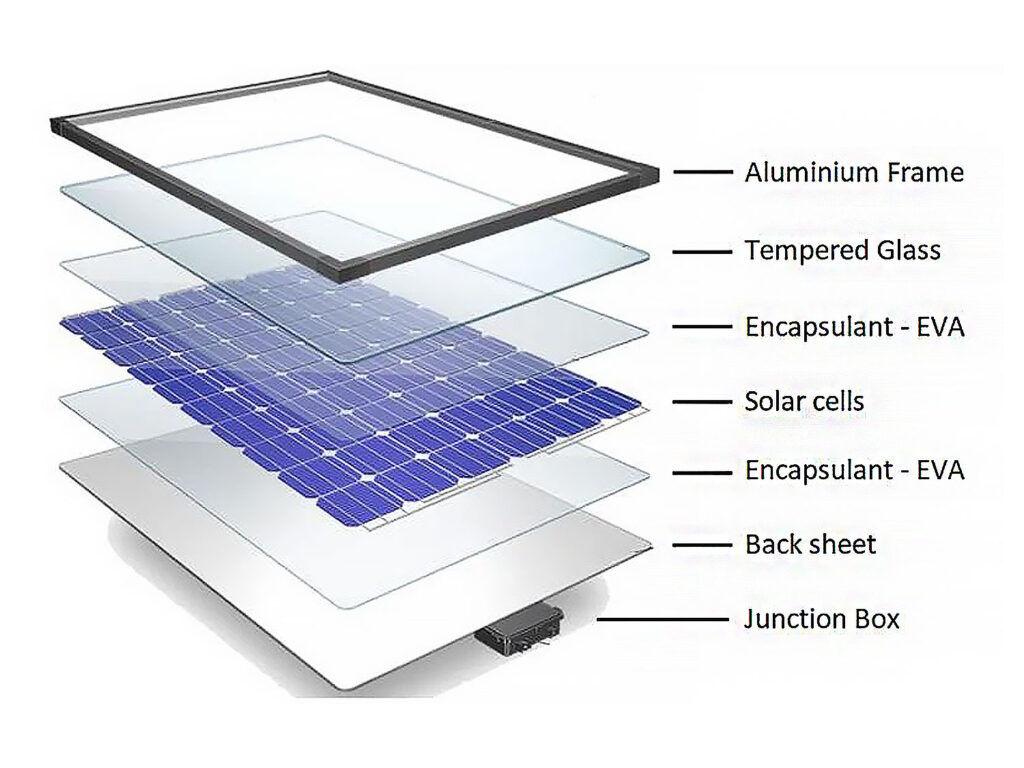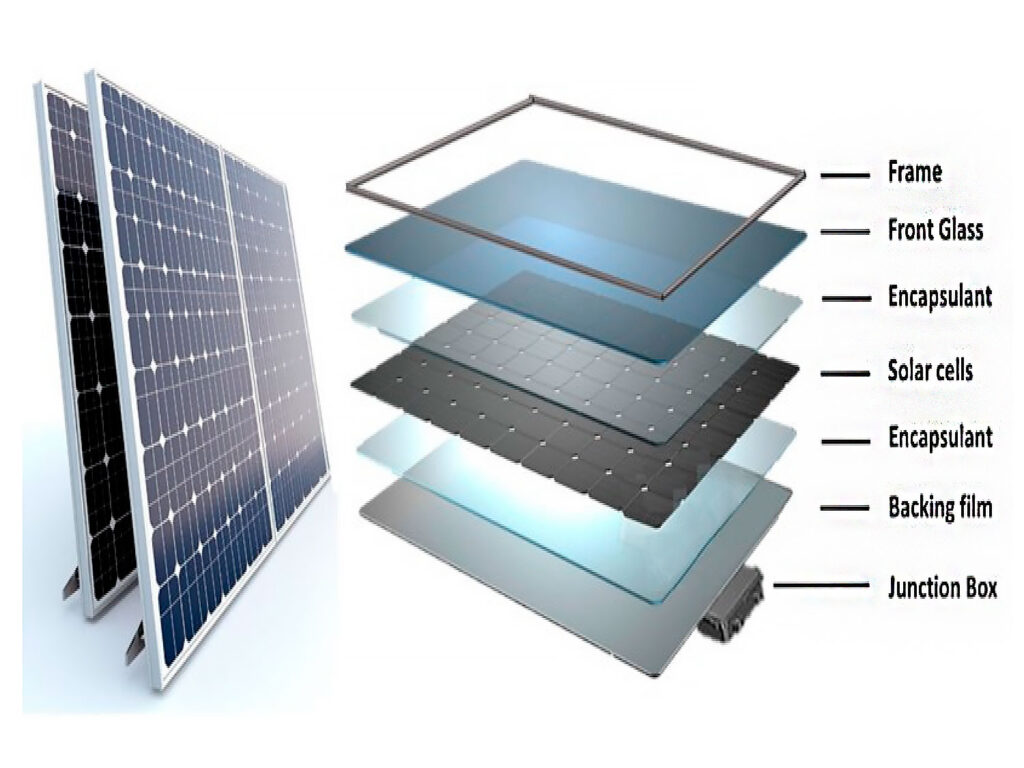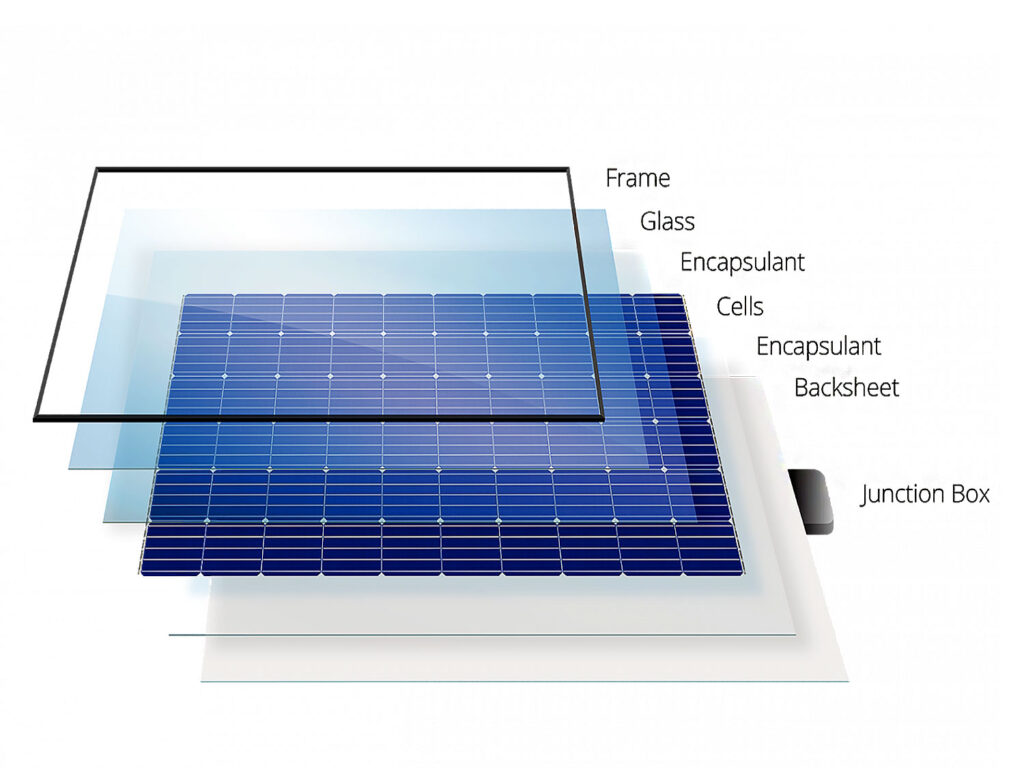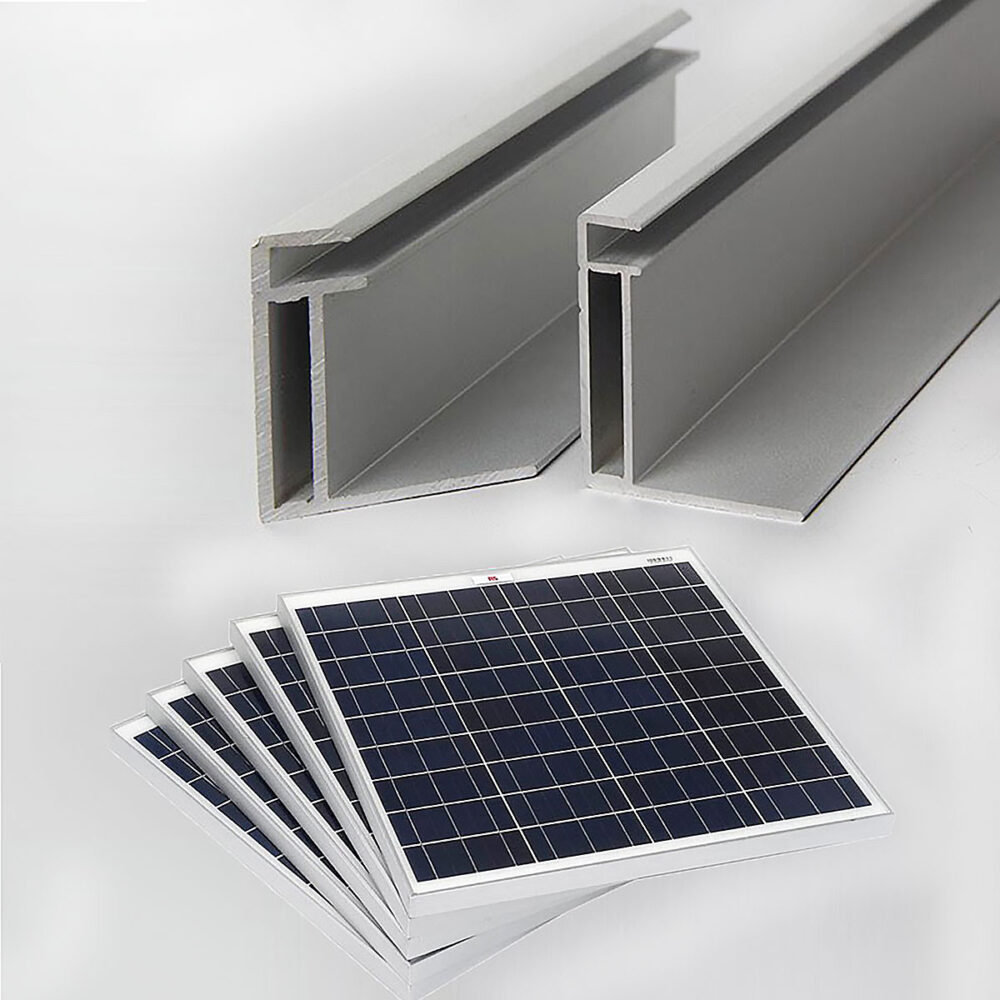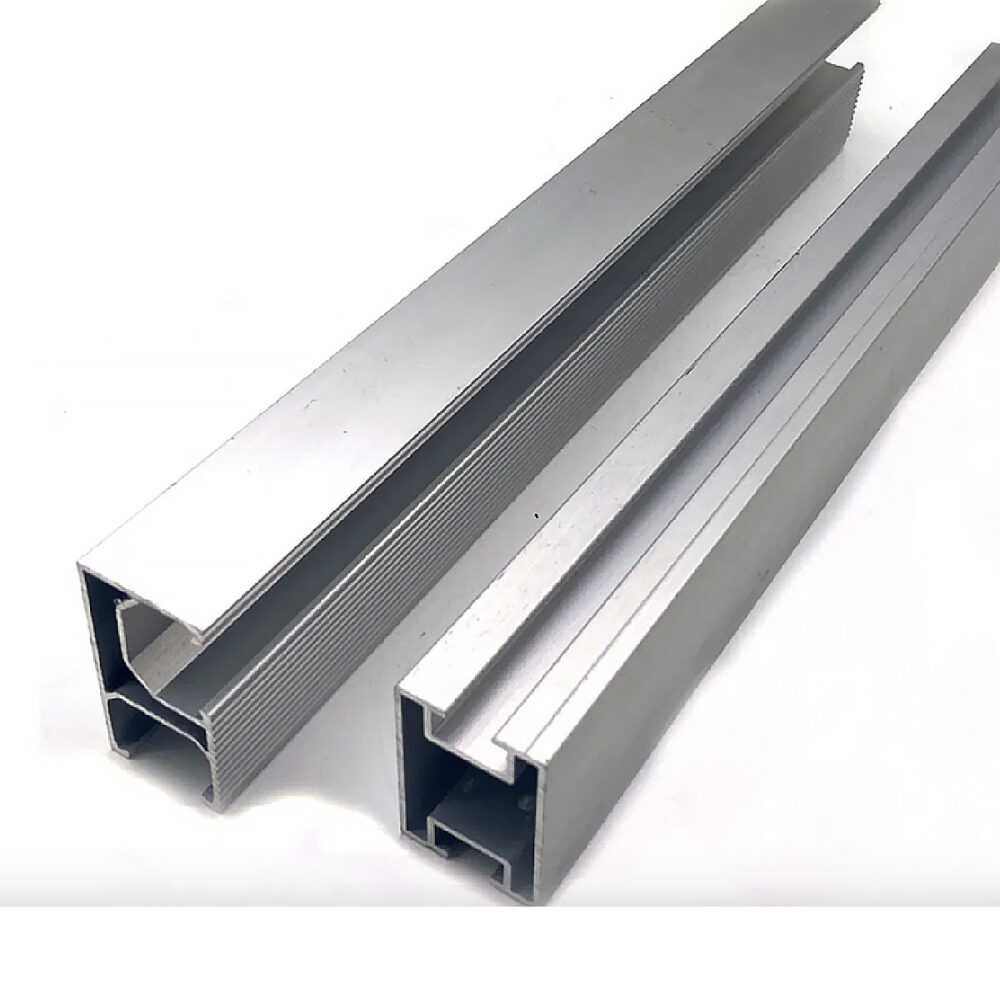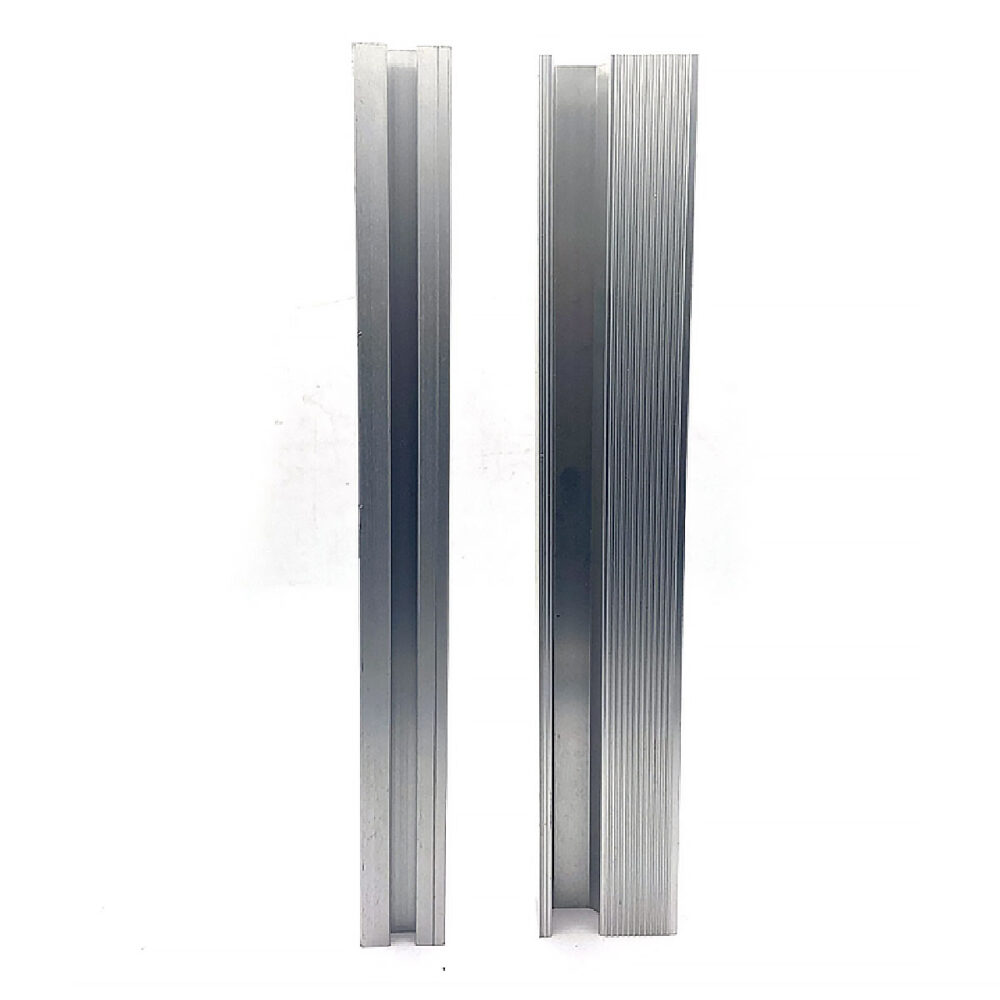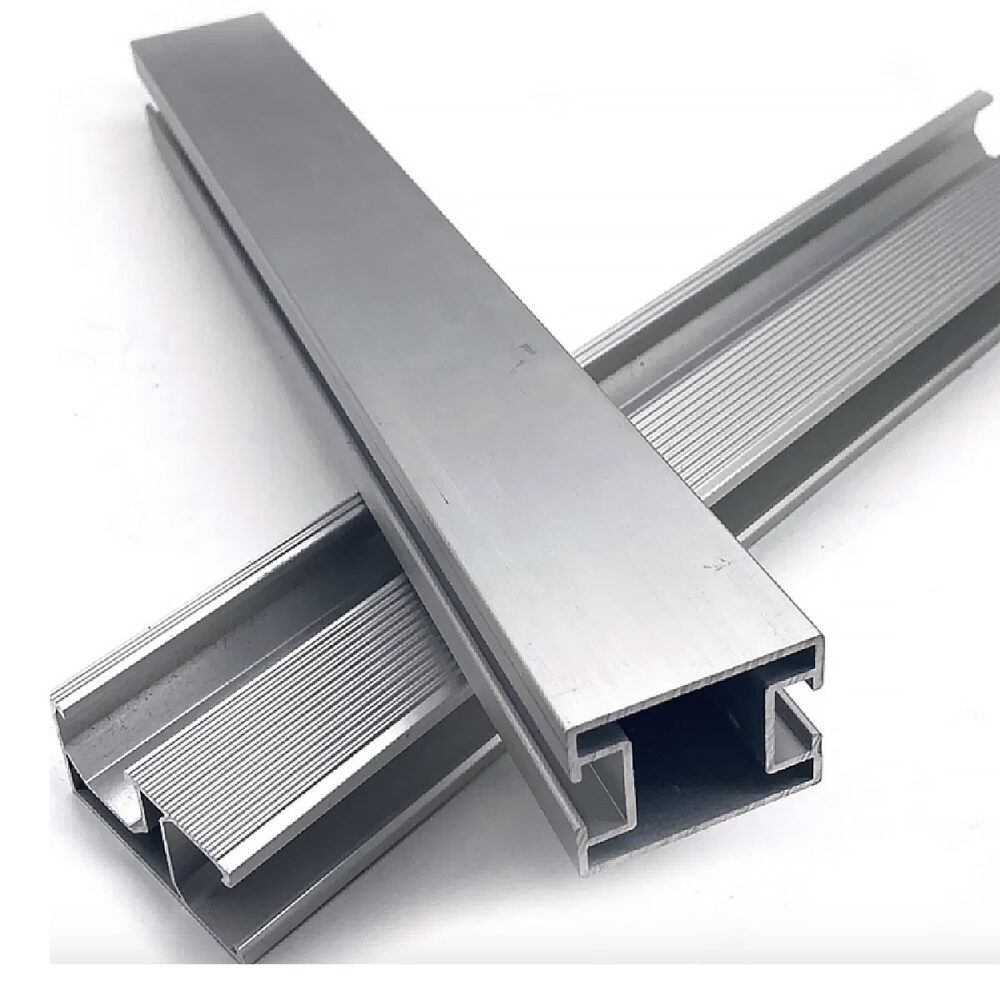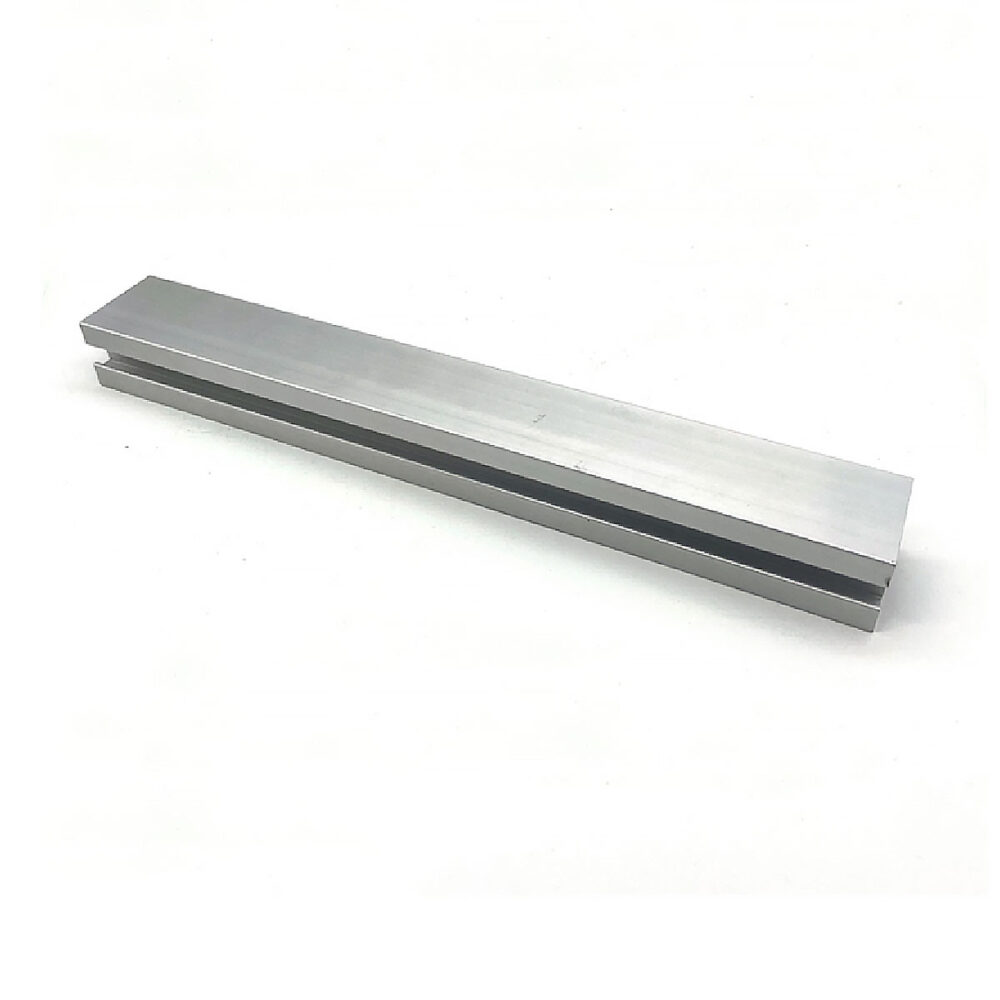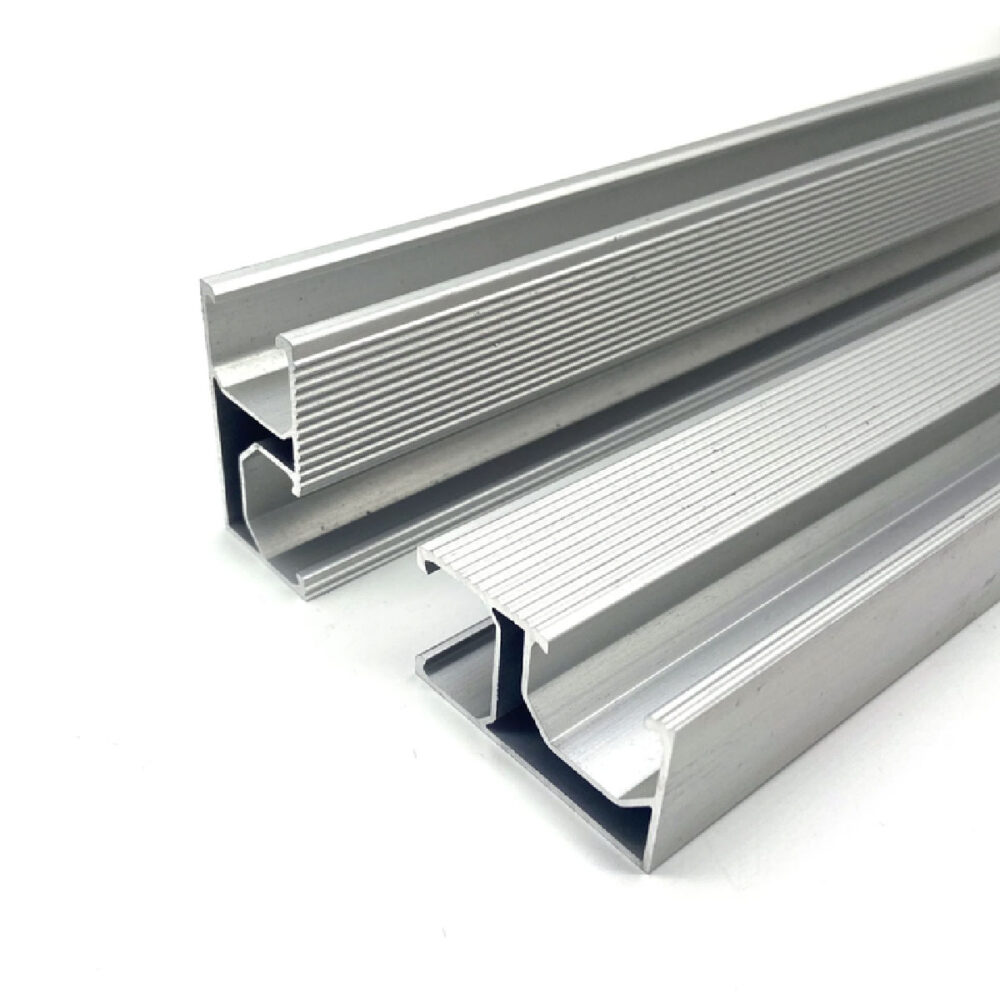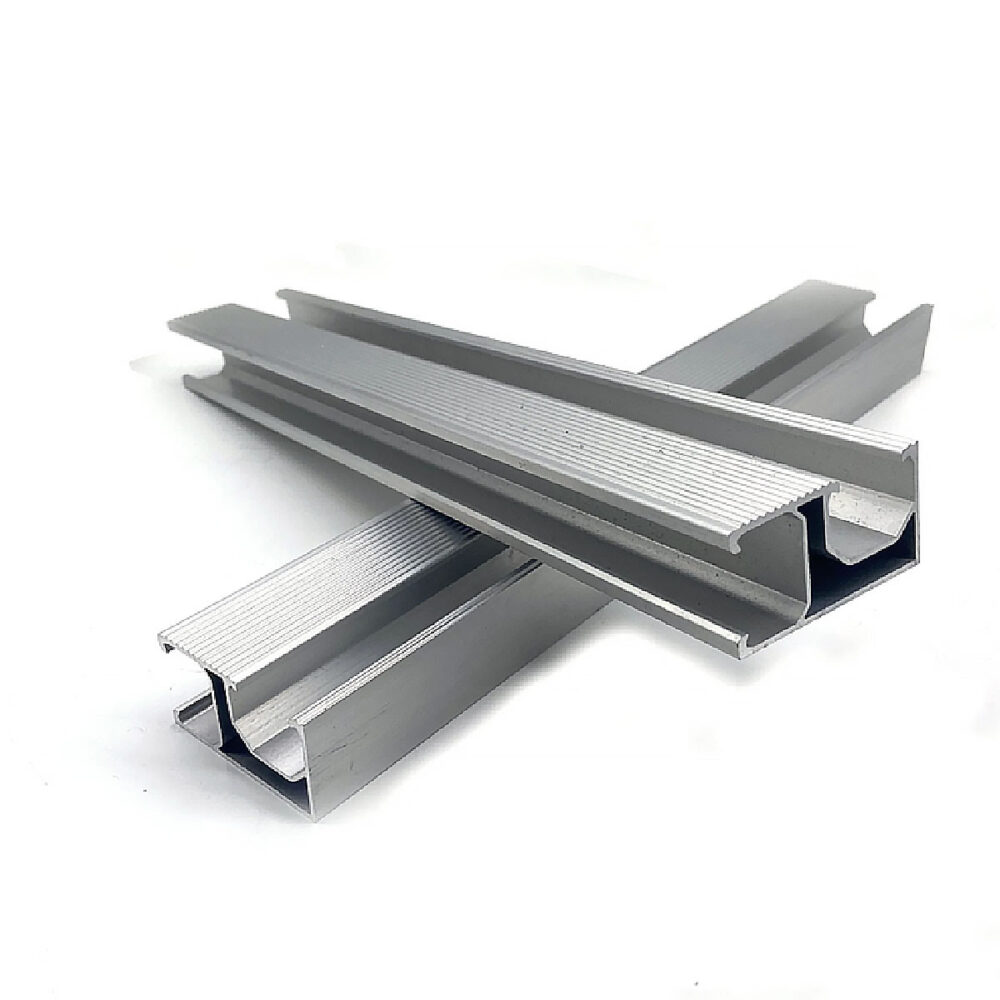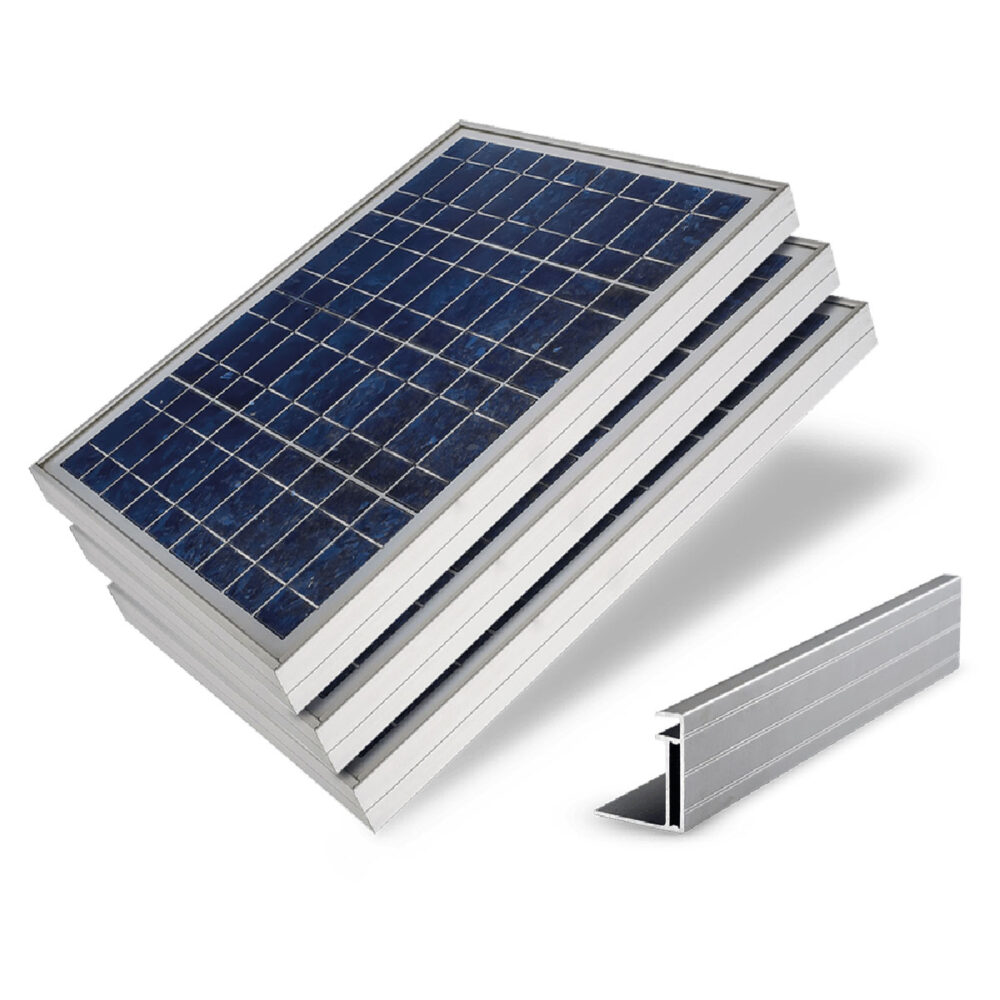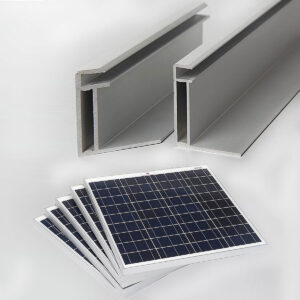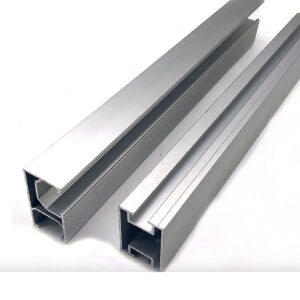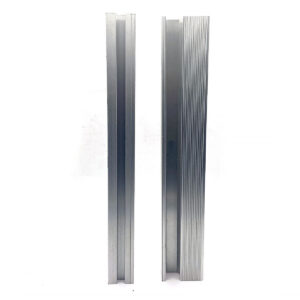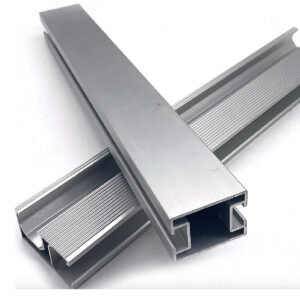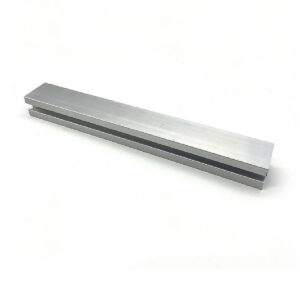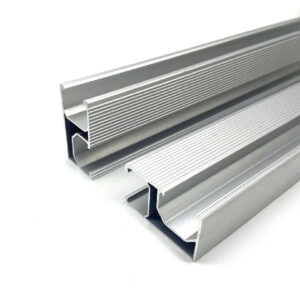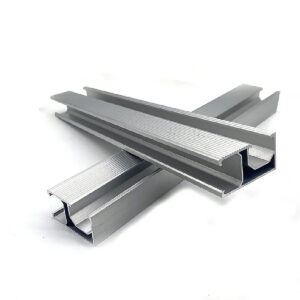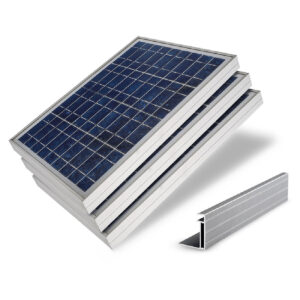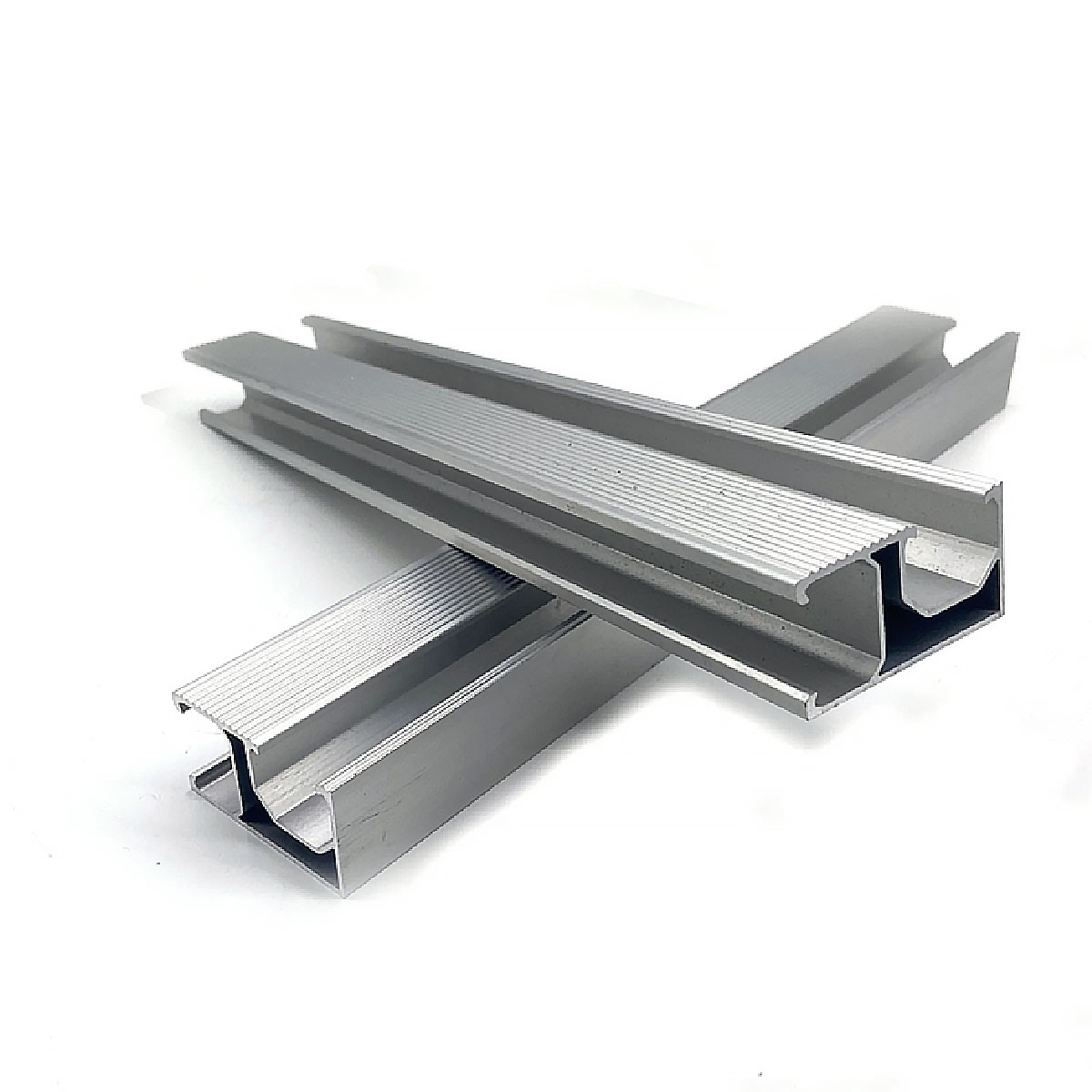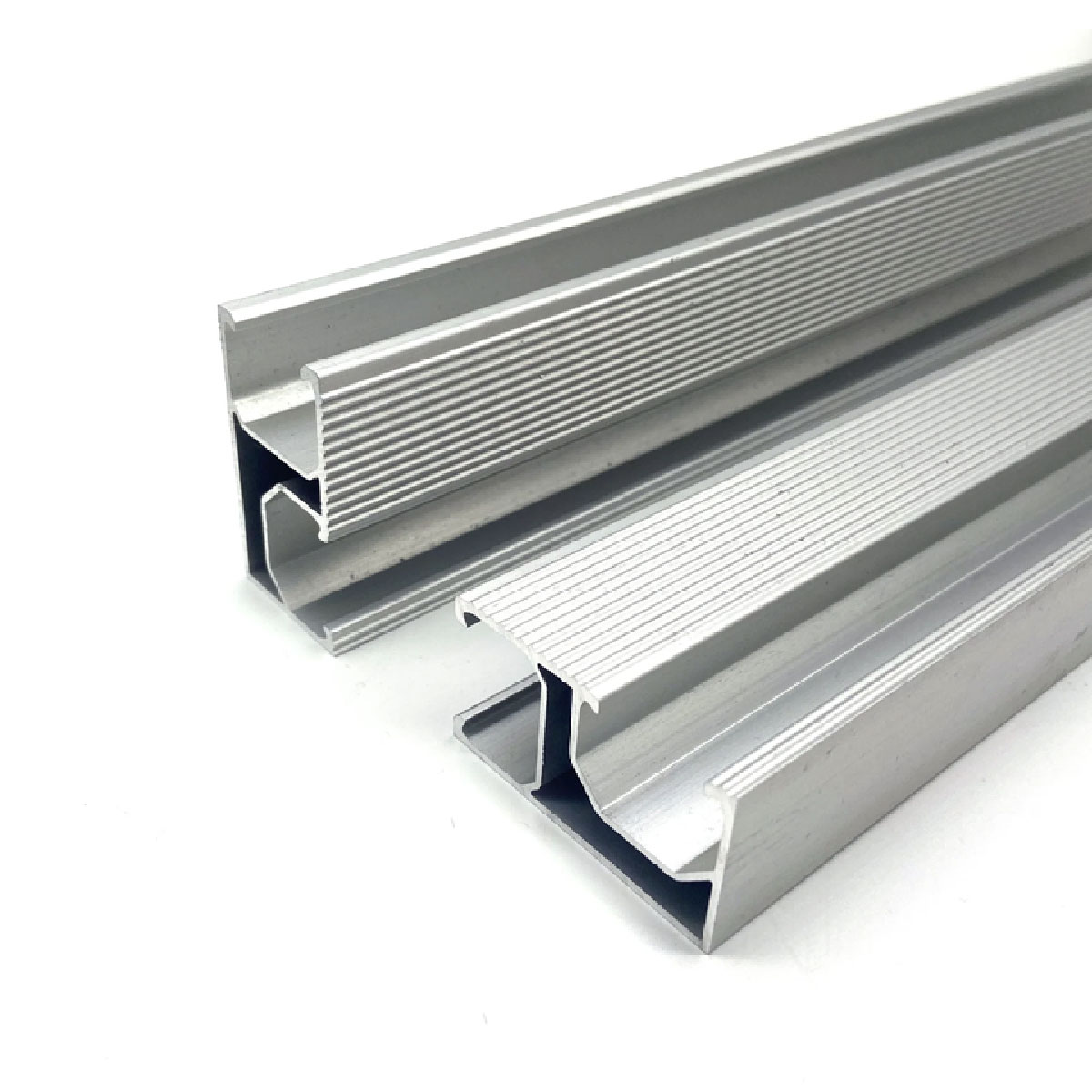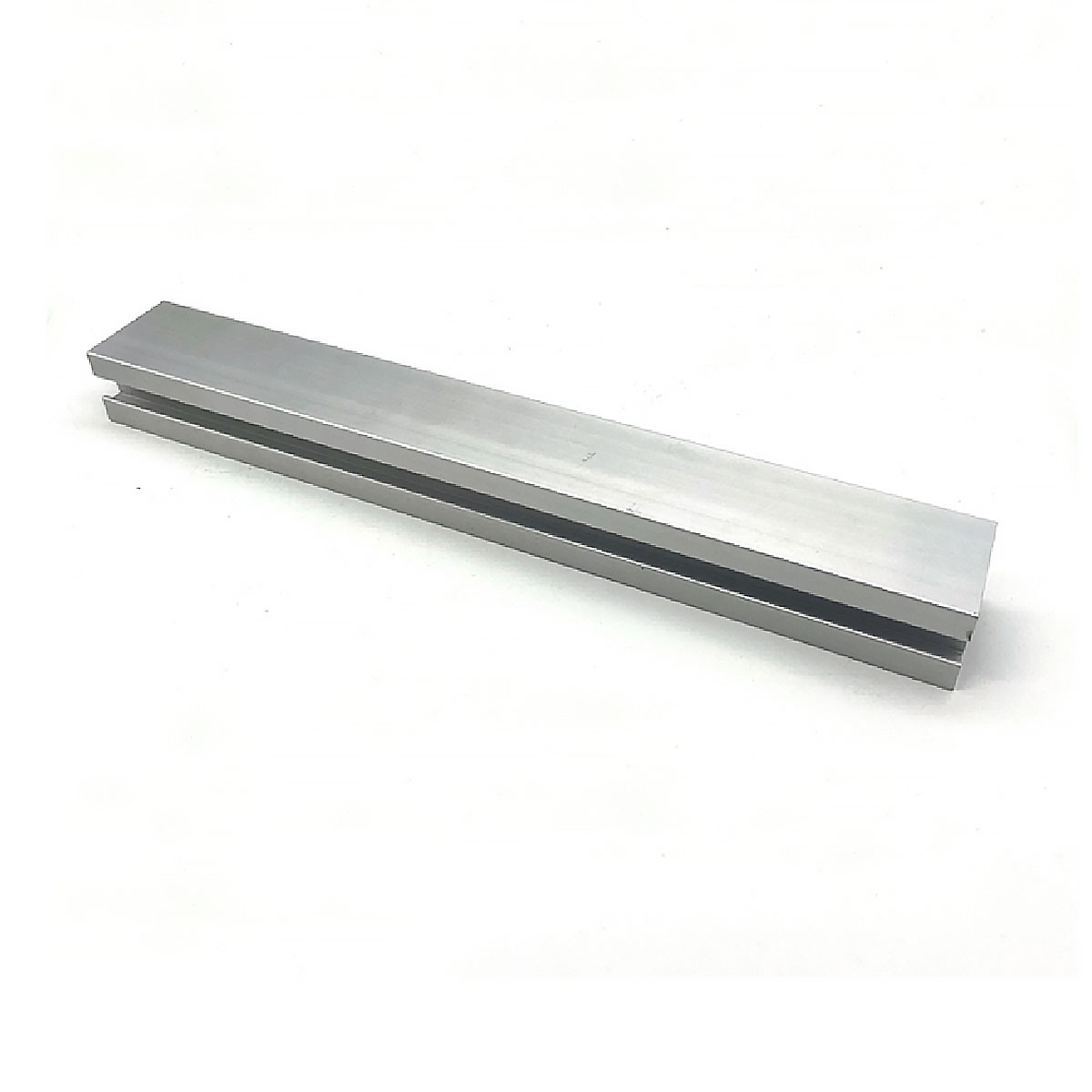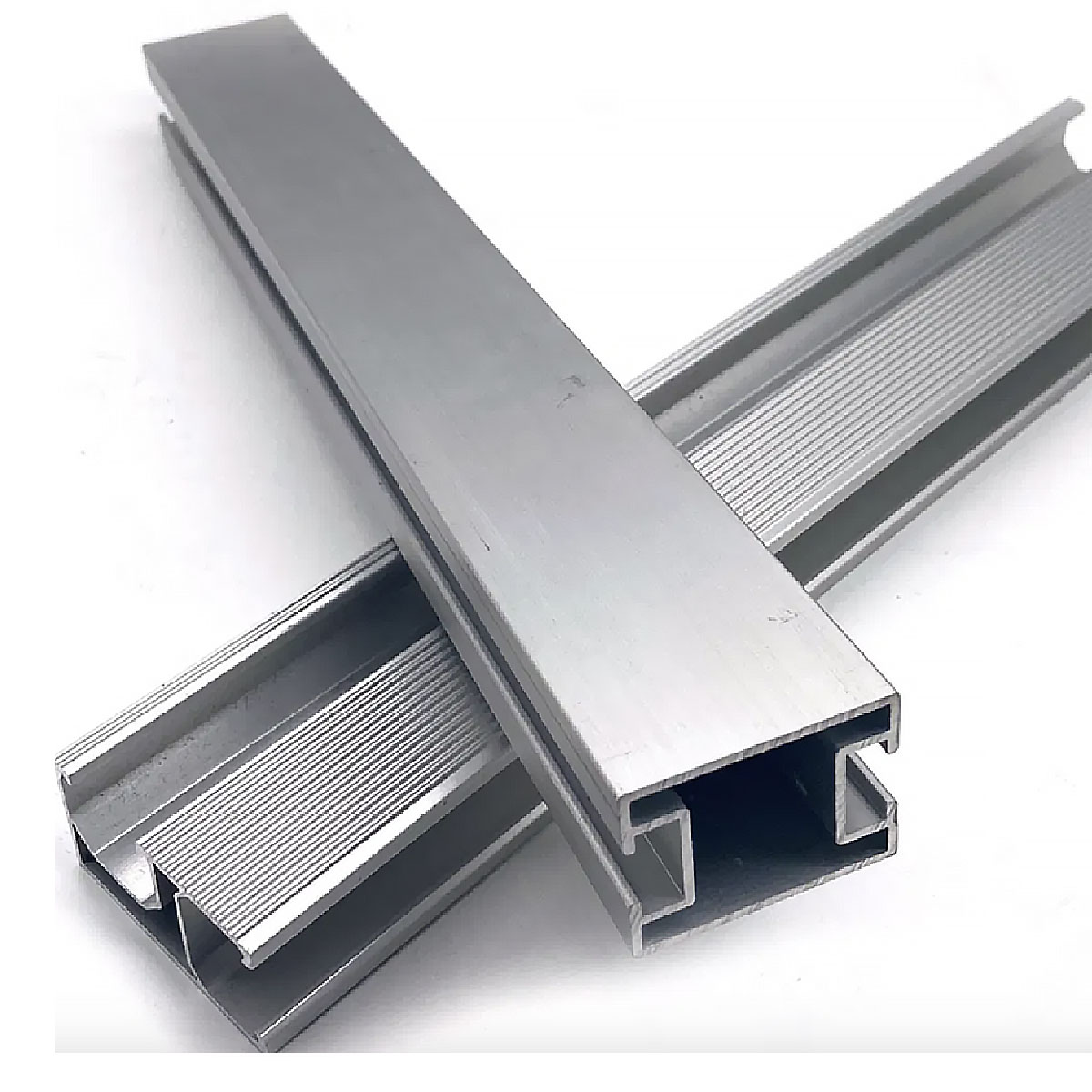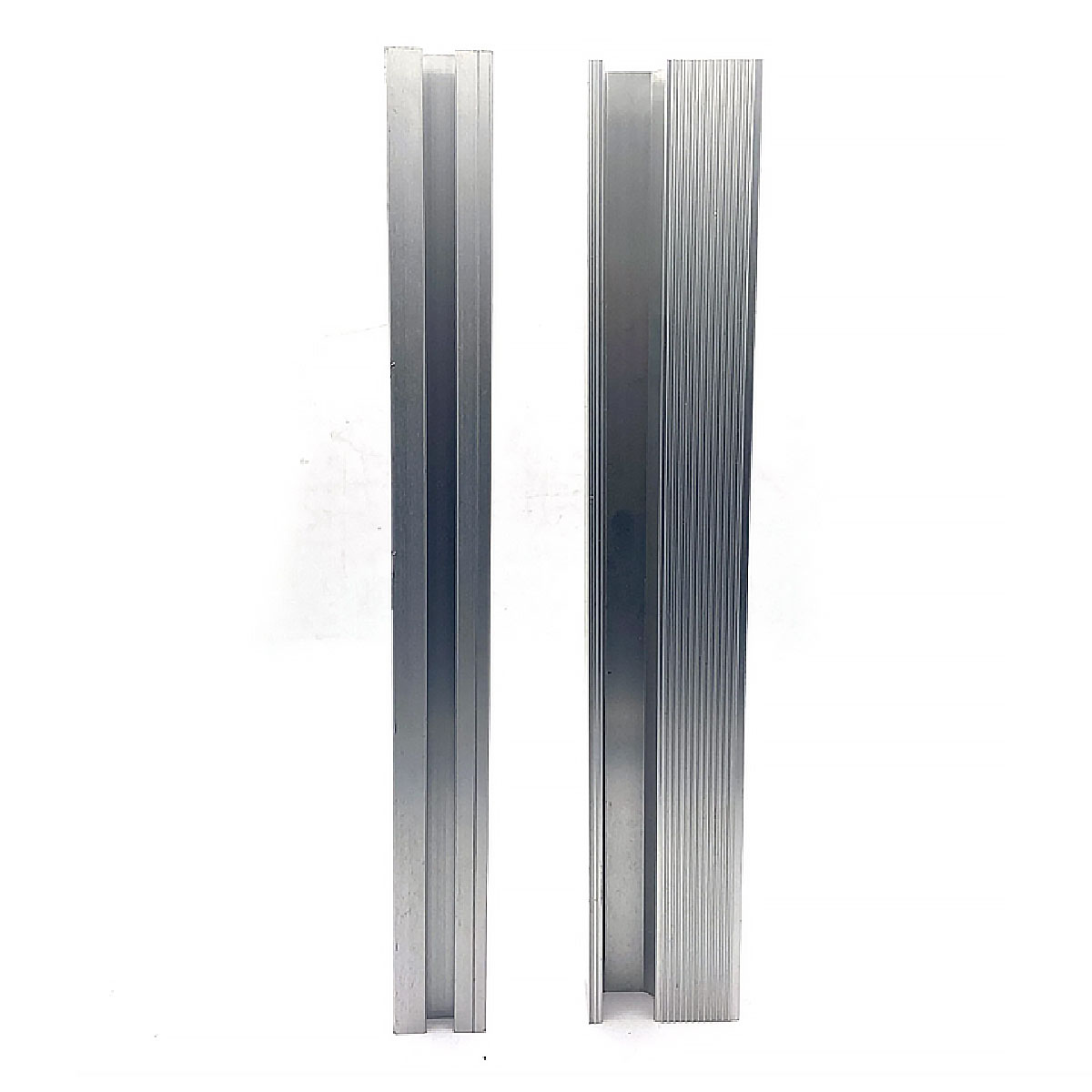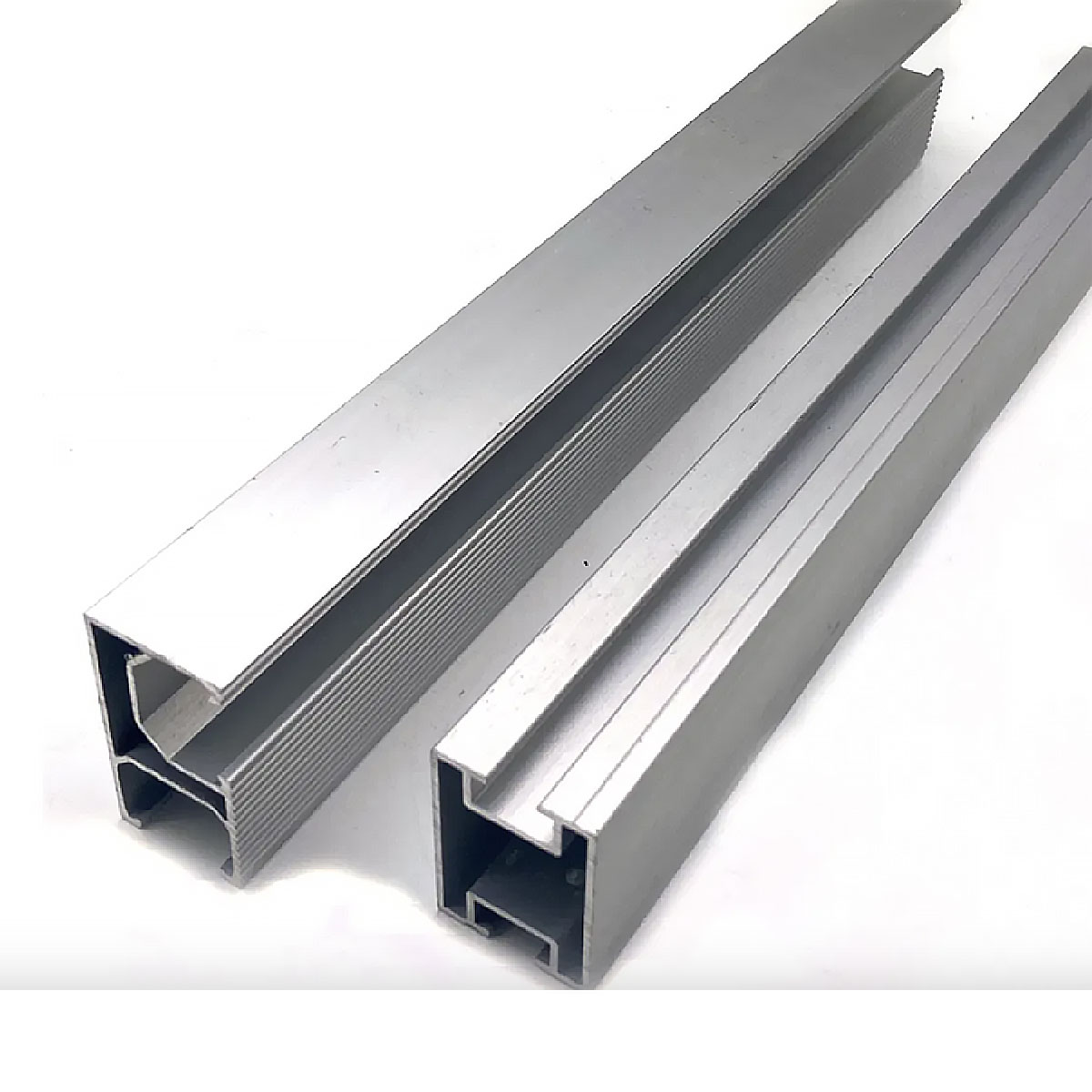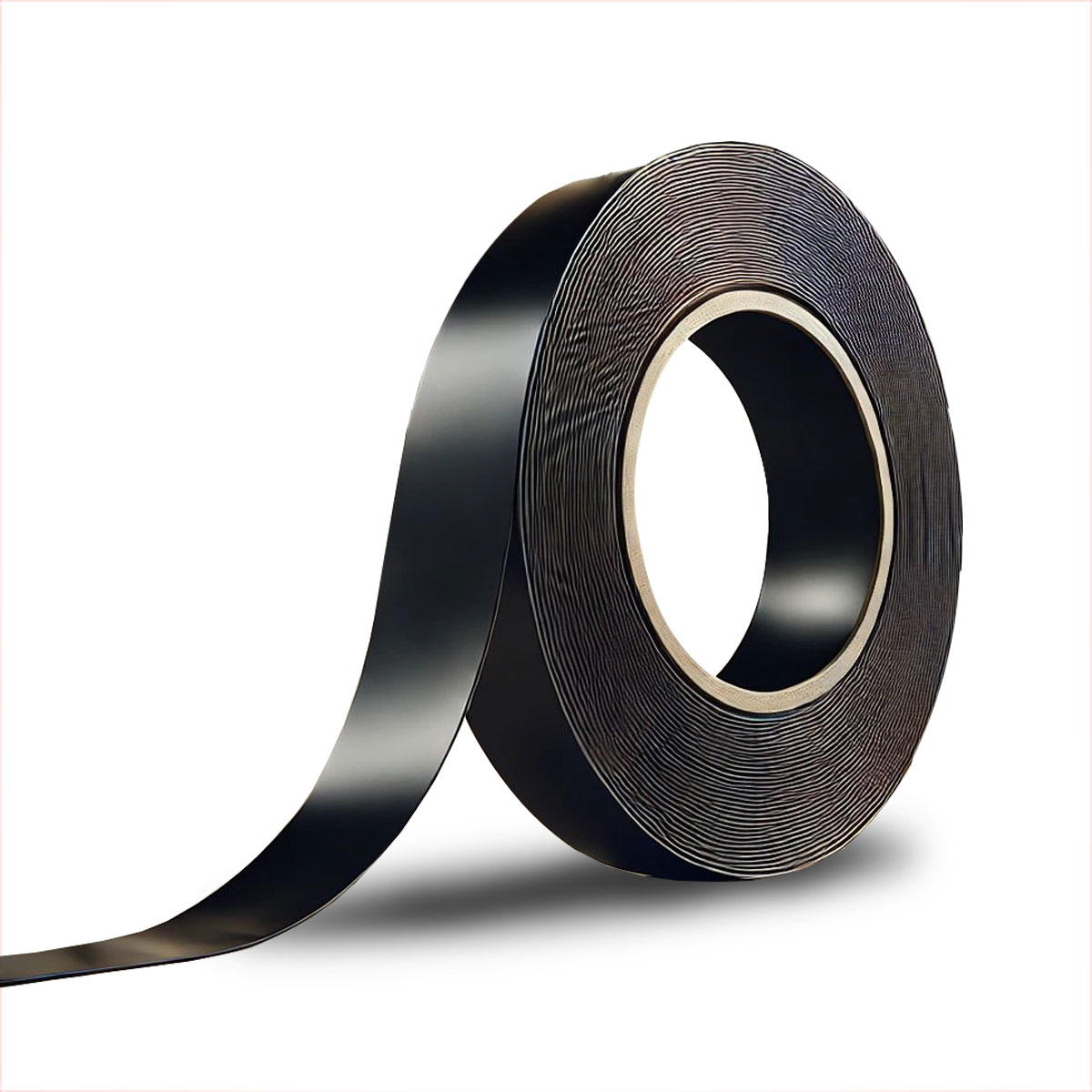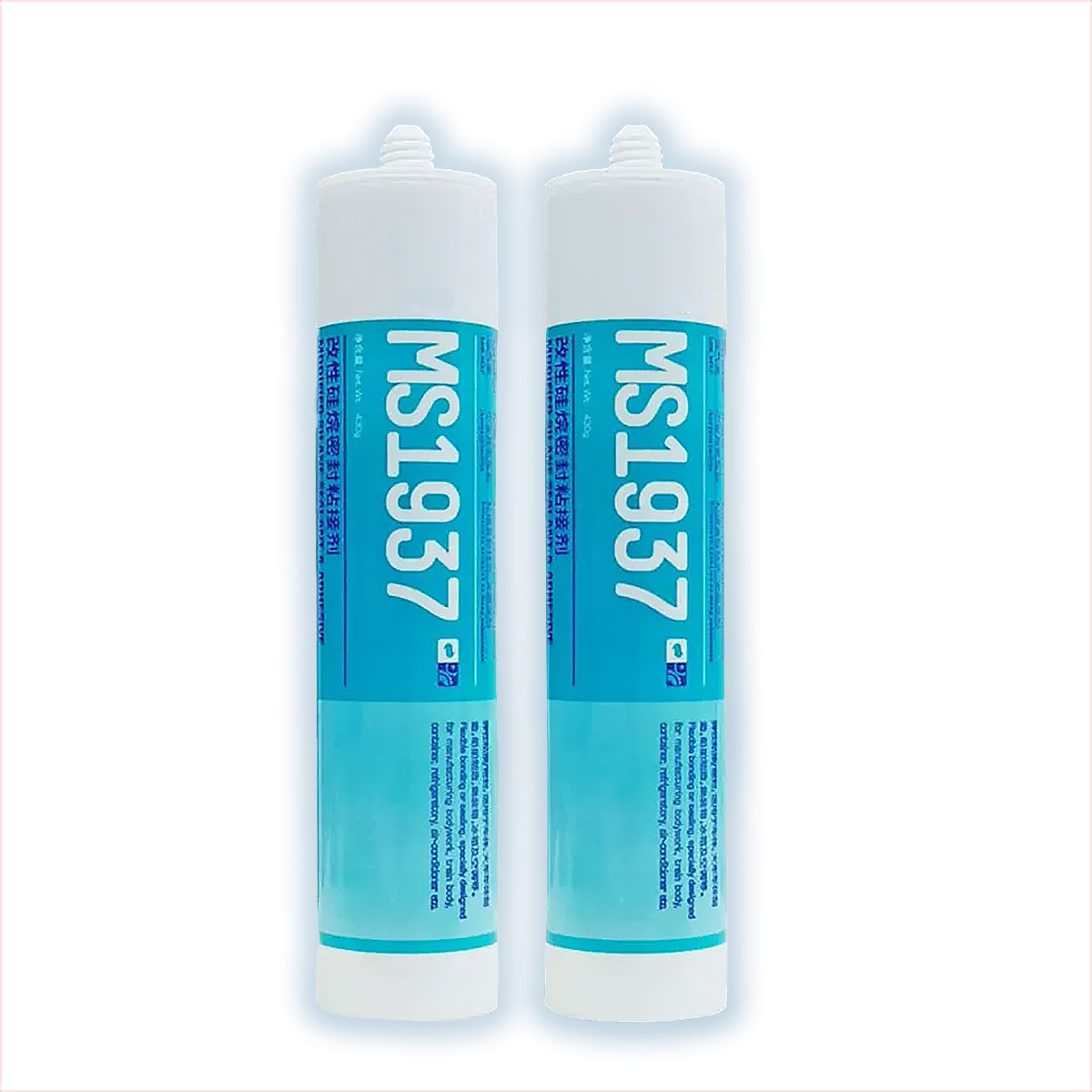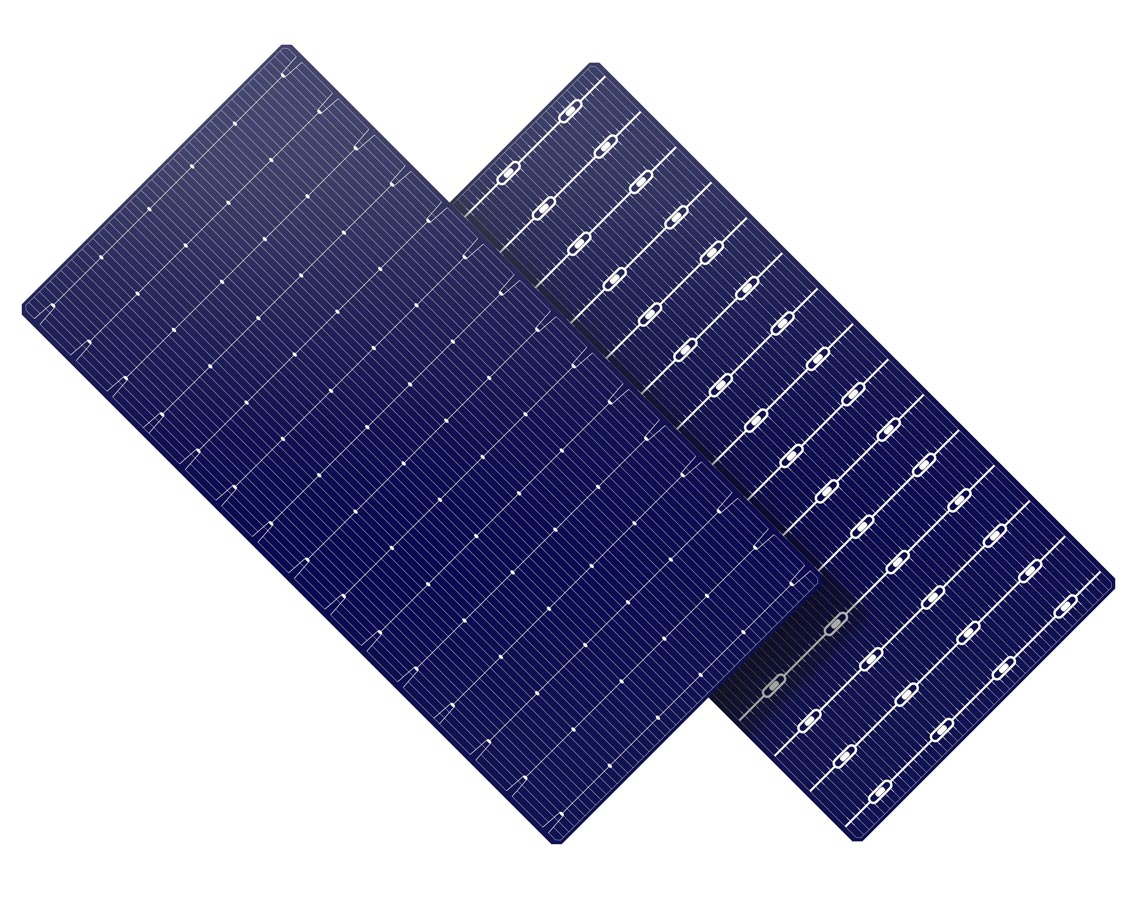Description
|
General Specifications about Solar Frame |
||||||||||||||||||
|
– |
Functions of a frame in solar panels: |
|||||||||||||||||
|
– |
Providing durability and structural support for the solar panel. |
|||||||||||||||||
|
– |
Facilitating installation on structures and scaffolding. |
|||||||||||||||||
|
– |
Protecting the edges of the glass and internal components from impact. |
|||||||||||||||||
|
– |
Improving water drainage to reduce dirt and water accumulation. |
|||||||||||||||||
|
Common Specifications |
||||||||||||||||||
|
1 |
Common Specifications |
|||||||||||||||||
|
– |
Material: Aluminum alloy (e.g., 6061, 6063, 6005). |
|||||||||||||||||
|
– |
Frame Dimensions: Vary based on the solar panel size and manufacturer, but common examples include: 33x18mm, 40x35mm, |
|||||||||||||||||
|
– |
Slot Size: The channel or groove within the frame where the glass and other components are secured (e.g., |
|||||||||||||||||
|
– |
Thickness: Refers to the height of the frame’s profile (e.g., 33mm, 40mm). |
|||||||||||||||||
|
– |
Color: Typically silver or black. |
|||||||||||||||||
|
– |
Surface Treatment: Anodizing is a common process to enhance corrosion resistance and durability. |
|||||||||||||||||
|
– |
Certifications: ISO, ROHS, SGS. |
|||||||||||||||||
|
– |
MOQ: Minimum Order Quantity (e.g., 500 sets). |
|||||||||||||||||
|
– |
Suitable Glass Thickness: Specifies the maximum thickness of glass the frame can accommodate (e.g., 3.2mm). |
|||||||||||||||||
|
2 |
Key Considerations: |
|||||||||||||||||
|
– |
Corrosion Resistance: Aluminum alloys are chosen for their resistance to rust and environmental factors. |
|||||||||||||||||
|
– |
Strength and Durability: The frame needs to be strong enough to support the weight of the solar panel and withstand wind and |
|||||||||||||||||
|
– |
Mounting Compatibility: The frame should be designed for easy and secure mounting to the intended structure. |
|||||||||||||||||
|
– |
Compatibility with Solar |
|||||||||||||||||
|
3 |
Additional Notes: |
|||||||||||||||||
|
– |
Some solar panel frames may be designed with specific features like pre-drilled holes for mounting or integrated wiring channels. |
|||||||||||||||||
|
– |
Frames are often designed to be stackable for efficient transportation and storage. The frame can be customized with various surface treatments like anodizing or powder coating. |
|||||||||||||||||
|
4 |
Characteristics of a good frame: |
|||||||||||||||||
|
– |
Made of corrosion-resistant aluminum. |
|||||||||||||||||
|
– |
Lightweight yet mechanically strong. |
|||||||||||||||||
|
– |
Compatible with various mounting systems. |
|||||||||||||||||
|
– |
Resistant to harsh weather conditions such as wind, snow, and rain. |
|||||||||||||||||
|
5 |
Frame shapes: |
|||||||||||||||||
|
– |
Sharp edge frame – More rigid. |
|||||||||||||||||
|
– |
Rounded edge frame – Preferred in some aesthetic designs or to reduce cable damage. |
|||||||||||||||||
|
|
||||||||||||||||||
|
Examples of specifications for some types of Solar Encapsulant |
||||||||||||||||||
|
|
||||||||||||||||||
|
Datasheet of Solar panel )AL–frame( |
||||||||||||||||||
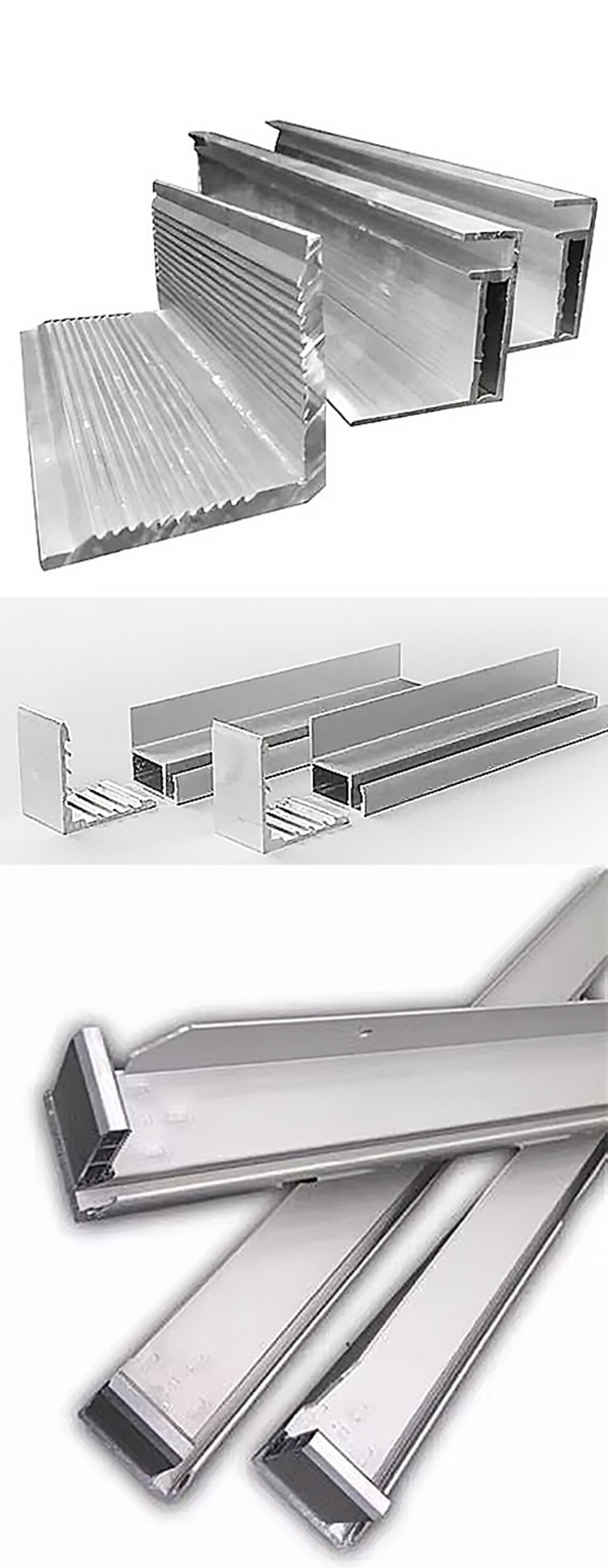
|
||||||||||||||||||
|
|
||||||||||||||||||
|
Technical Specification |
||||||||||||||||||
|
Grade |
6063 |
Temper |
T5 |
Type |
Profile |
|||||||||||||
|
Brand Name |
— |
Thickness |
0.4mm-50mm |
Cross-section |
8mm-650mm |
|||||||||||||
|
Surface Treatment |
Customization |
Alloy or not |
Is Alloy |
— |
— |
|||||||||||||
|
Loading port |
Shanghai |
Trade term |
FOB CIF CNF |
sample |
free and fast |
|||||||||||||
|
Advantages |
1 |
Good quality in material |
||||||||||||||||
|
2 |
Excellent surface finish |
|||||||||||||||||
|
3 |
Competitive price |
|||||||||||||||||
|
Certificate and Standard |
1 |
ISO9001-2008/ISO 9001:2008. |
||||||||||||||||
|
2 |
CQM Certification. |
|||||||||||||||||
|
3 |
SGS, CE, BV, JIS, AS, available. |
|||||||||||||||||
|
Guarantee |
Surface color can be stable for 10~20 years indoor using. |
|||||||||||||||||
|
Lead Time |
Mass Production: 10-20days. |
|||||||||||||||||
|
Settlement Terms |
Charge by final actual weight or by drawing theoretical weight. |
|||||||||||||||||
|
Aluminum Alloy Chemical Composition |
||||||||||||||||||
|
Alloy |
Element |
Si |
Fe |
Cu |
Mn |
Mg |
Cr |
Zn |
Ti |
|||||||||
|
6063 |
Standard |
0.2-0.6 |
≤0.35 |
≤0.1 |
≤0.1 |
0.45-0.9 |
≤0.1 |
≤0.1 |
≤0.1 |
|||||||||
|
Testing result |
0.483 |
0.143 |
0.019 |
0.017 |
0.554 |
0.0052 |
0.001 |
0.0029 |
||||||||||
|
|
||||||||||||||||||
|
Comparison Between Framed and Frameless |
||||||||||||||||||
|
Feature |
Framed Panels |
Frameless Panels |
||||||||||||||||
|
Aesthetic Appearance |
Traditional look with visible aluminum frame |
Sleeker, modern appearance – glass only |
||||||||||||||||
|
Weight |
Relatively lighter |
Slightly heavier due to double glass design |
||||||||||||||||
|
Installation |
Easier to install using standard mounting clamps |
Requires specialized mounting systems |
||||||||||||||||
|
Mechanical Protection |
Good protection for edges and corners |
Edges more exposed to damage |
||||||||||||||||
|
Water/Dust Drainage |
Frame may trap water and dust in some cases |
Allows smooth flow of water and dust |
||||||||||||||||
|
Durability in Harsh Weather |
Very good, especially against wind and snow |
Also durable, but depends on glass quality and mounting |
||||||||||||||||
|
Cost |
Generally lower cost |
Slightly more expensive due to materials and mounting |
||||||||||||||||
|
Common Usage |
Widely used in residential and commercial systems |
Often used in aesthetic projects or harsh environments |
||||||||||||||||
